Sheringham, a storybook seaside town on the north coast of Norfolk, looks like the version of Britain that Brexiteers were talking about when they said they wanted to “take the country back” in last summer’s referendum.
Red, white, and blue bunting flutters in the light summer breeze along its quaint high street, dotted with net-curtained tearooms and amusement arcades that looked like they last had an update the first time Britain voted on its place in Europe in 1975.
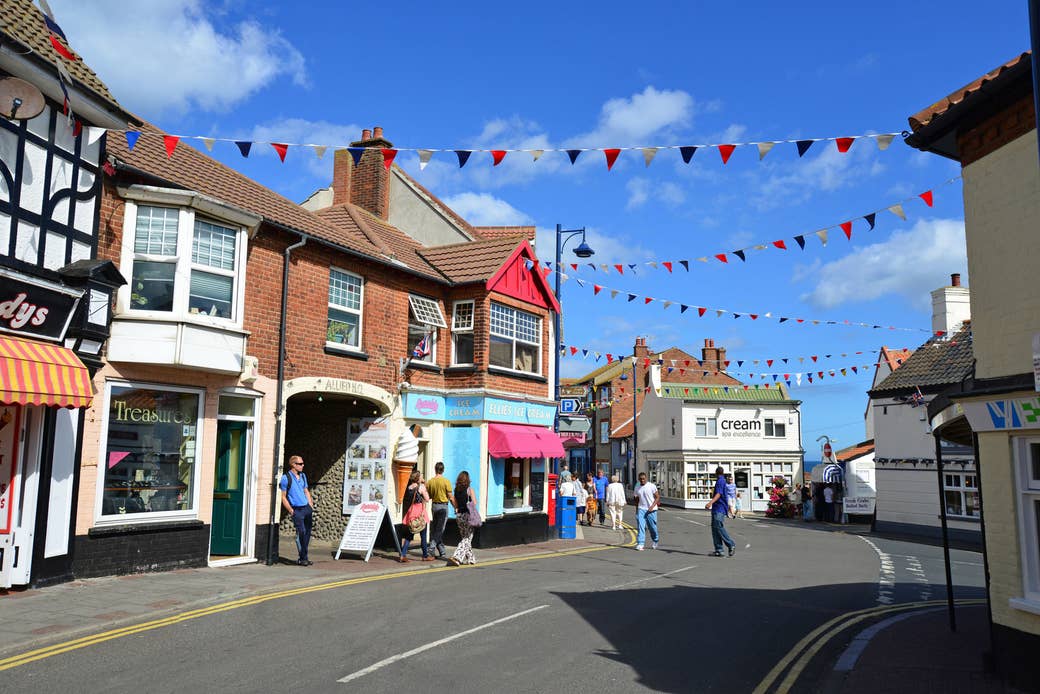
Only a solitary gelato stall among the several ice cream shops selling Mr Whippy hints at the UK’s modern ties with Europe, which 58.9% of the population of North Norfolk, Sheringam’s constituency, voted to sever – a considerably higher proportion than the 52% national average.
The constituency has been a Liberal Democrat stronghold for over a decade, but is emblematic of a crisis that the party is facing across the country. Leader Tim Farron hopes to gain seats in the general election by appealing to Remain voters, promising to challenge Theresa May’s proposed “hard Brexit” by pushing for a second referendum, on the final deal with Brussels.
But the polls suggest this policy is squeezing the party out in areas where it hopes for success. BuzzFeed News visited Sheringham, where Lib Dem veteran Norman Lamb is seeing his party’s support eaten away in an ever closer race, and Burnley in Lancashire, a top Lib Dem target seat in the election.
In both, we found that while the Lib Dem candidates had the trust and affection of many voters, their campaigns for re-election were being hit by the approach of their party nationally.
North Norfolk was one of a small handful of seats the Lib Dems managed to hold on to following their near-obliteration in 2015’s general election.
Lamb, who has held the seat for 16 years, is popular and well known, but Brexit could prove to be the spanner in the works when it comes to keeping his seat next week.
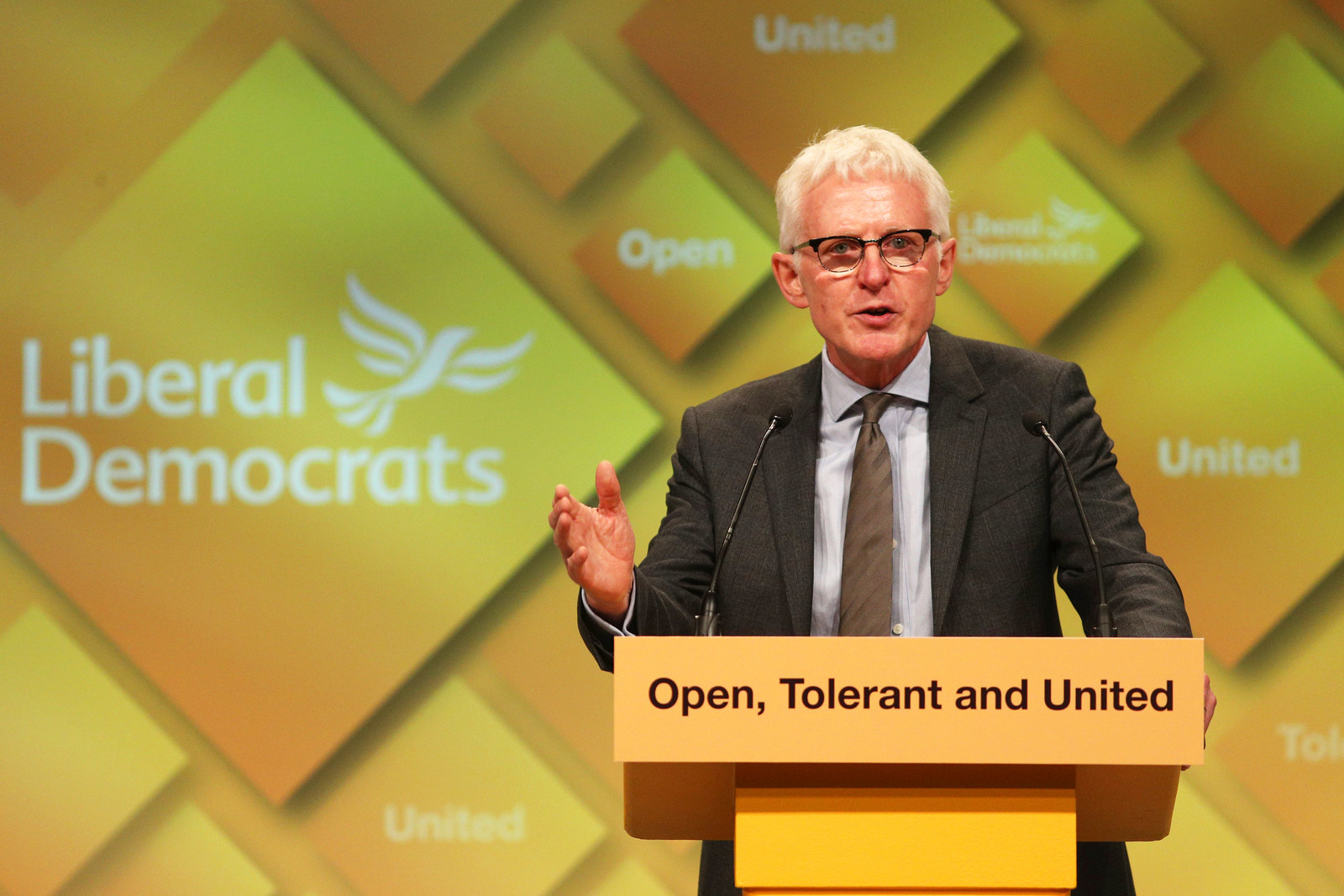
Bright orange “Vote Lamb” posters glow from windows across Sheringham when BuzzFeed News visits. Lamb, who only narrowly lost the Lib Dem leadership contest to Farron, saw his majority of 11,600 slashed to 4,043 in 2015, as the UKIP vote soared, taking the party into third place behind the Conservatives. Next week, he faces a tight three-way race with Labour and the Conservatives after the Green Party and UKIP chose not to field candidates.
Though has Lamb made it clear he doesn’t agree with his party’s call for another referendum, many Lib Dem voters could be moving towards voting for the Tories.
Debbie Banks, who runs a market stall selling sunhats and T-shirts opposite Sheringham station, told us she thinks Lamb is a “lovely guy” who has done a lot for her part of the country but that she’s “a Tory this time around”.
She said she had voted for the Lib Dems in previous elections but cited Farron’s insistence on a second referendum as a direct reason for her switch.
“At the end of the day, the country spoke,” Banks said. “They asked what our opinion was, we said ‘Yes please, we want out!’ Let’s just leave it at that.”
While Banks was well acquainted with Lamb, who she said she’d enjoyed a chat with earlier that afternoon when he visited the market, she did not name James Wild, the local Conservative candidate, during our conversation. Instead, she expressed her support for Theresa May.
“I think she’s brilliant,” Banks beamed. “She knows what she wants, she goes for what she wants, and she gets what she wants.” While May’s public support seems to have waned in recent weeks amid a muddled launch of an opaque manifesto, Banks remained full of enthusiasm for the Tory leader. “I watched the TV debate on Monday and none of them ever answer questions properly, but she did, and she definitely knows her figures.”
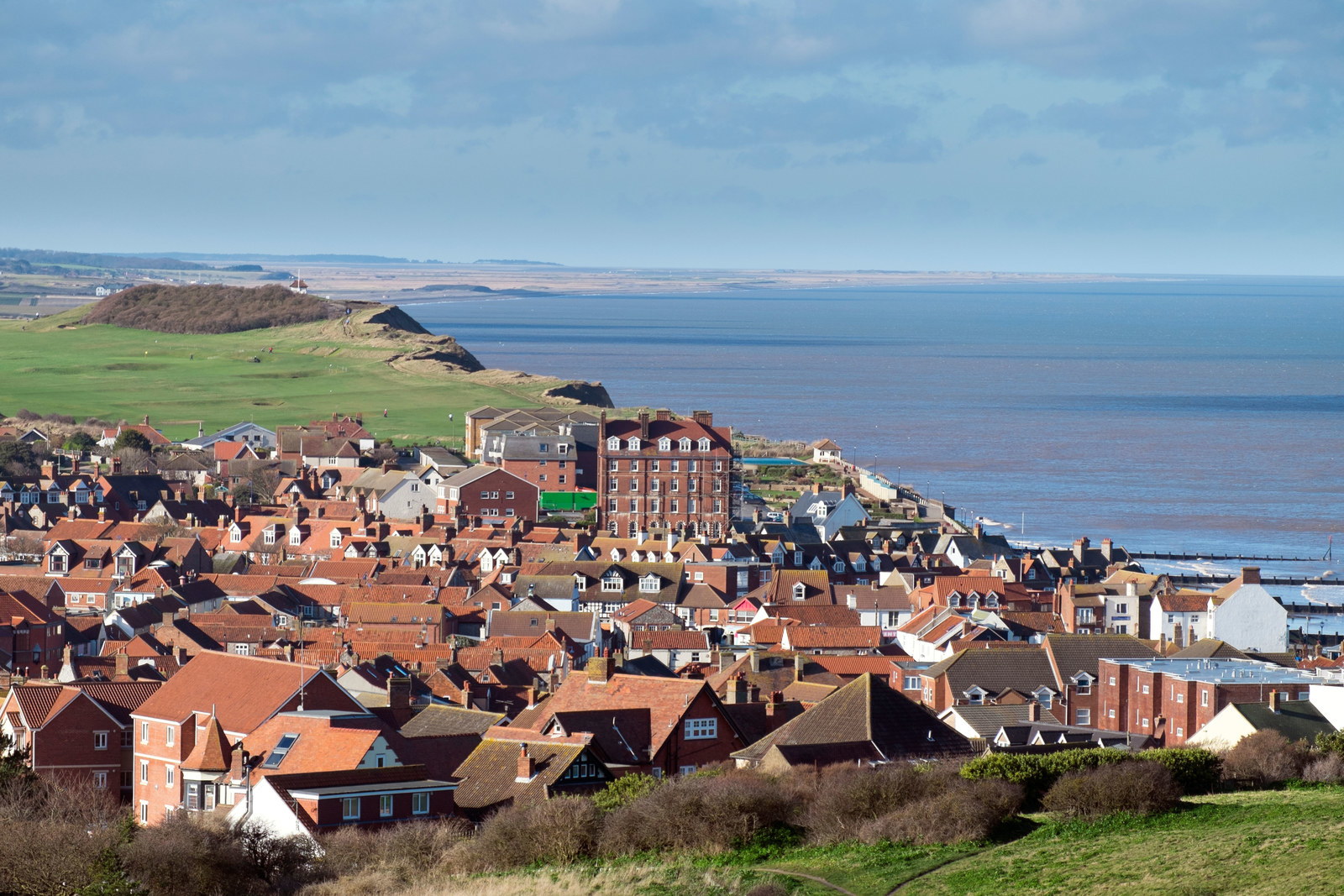
An older man named John Durrant, who we met on his way to the town’s supermarket, was also planning to swap his usual Lib Dem support for a Conservative vote on 8 June.
Durrant said he had voted to leave the EU, but felt like he regretted his decision. Despite that, he believed the Conservatives were the right party to take Britain through Brexit. “I just think the way things are, the Conservatives have started it off so they have to carry on,” he said.
Durrant added that he had voted for the Lib Dems in the past because he liked Lamb, rather than the Lib Dems overall. “I normally vote for him rather than the party, but this time I’ll have to go for the Conservatives,” he said. “Nothing against him, because I do think he’s done a lot of good around here. If someone’s got a problem he’s always there helping out.”
The Conservative party manifesto contains controversial policies on social care, dubbed the “dementia tax,” which use the value of a pensioner's home to determine the amount of state-funded care they will receive. The ageing and not-especially-wealthy population in North Norfolk could be especially hard hit. Durrant said he worried about this, but policies from the Lib Dems and Labour had not piqued his interest. “They’re all making promises that they can’t fund anyway and things are in such a state,” he said.
Over lunch of locally caught crab sandwiches at Roy Boy’s Café in Sheringham, Lamb is all too aware of the clash between constituents’ support for Brexit and his party’s pro-Remain stance.
But he was feeling upbeat, telling us that it’s been particularly important to run a personal campaign this election. “I’ve been keen to stress to people that I am my own person, I won’t be told what to do, and I make my own judgment,” he said. “I’ve fought my own issues here and they’ve struck a chord with a lot of people.”
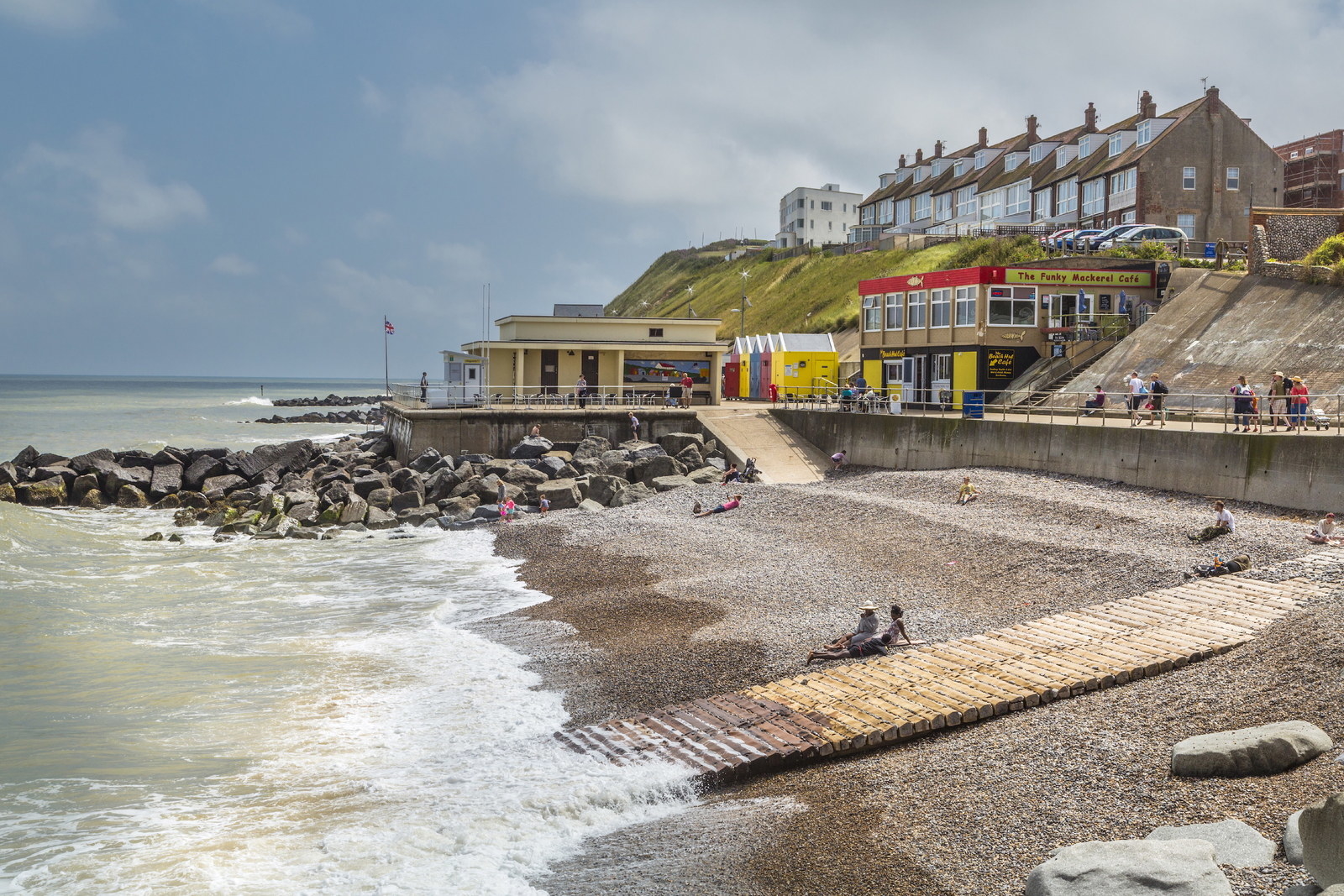
While Lamb voted Remain, he said that he accepts the outcome of the referendum, and abstained on January’s parliamentary vote that allowed May to go ahead with triggering Article 50 to start the Brexit process. “I genuinely felt you can’t vote to have a referendum against triggering the outcome that people voted for,” Lamb told us.
The seasoned politician, who chatted familiarly with staff at the café, said he had felt a real buzz around his campaign: “I’ve held the seat for 16 years and an awful lot of people know me by my first name.
“There’s been a loyalty from people who’ve said, ‘Well, you helped us out 10 years ago, so we’ll support you.’ It doesn’t work with everyone but you do build up this degree of insulation against national trends.”
While Lamb has been wary of criticising his party’s national campaign, he's also made efforts to distance himself from Brexit, instead focusing on the threat that further Tory-backed cuts to the NHS and education could pose locally – issues that people BuzzFeed News met around Sheringham raised too.
The Lib Dems, like Labour, have put forward substantial policies on health and education, including a Lib Dem pledge to add a penny to income tax to boost funding for the NHS, something Lamb had found was going down well with voters.
“Interestingly, although [Brexit is] clearly a dividing issue, it’s not actually what’s uppermost in most people’s minds,” Lamb said. “All these other issues come to the fore because that’s often what most people care about.”
Because North Norfolk is so tightly contested between the Lib Dems and the Conservatives, Lamb hopes to gather up some votes from those who might usually choose Labour but would vote for him to keep the Tories out. “You end up building up a coalition of support from across the spectrum,” he said.
This was a sentiment we repeatedly encountered around the town. “My mum and I might have to tactically vote for Lib Dems, so the Conservatives don’t get the seat,” Neola, a Labour supporter working in a local charity shop, told us. “Nobody else I know is voting Labour apart from my family and friends.”
Mr Wye-Harris, a Labour-leaning bookseller in the market who didn’t want to give his first name, felt similarly. “It’s a toss-up between Lamby and a wasted vote for Corbyn,” he said. “Anyone but the Tories.”
With UKIP having counted itself out in North Norfolk, some might think that its backers will find a natural home with the right-leaning Tories. But Lamb believes that this won't necessarily be the case, even in the face of a Eurocentric Lib Dem campaign. “It’s a dangerous assumption because it’s much more nuanced than that – lots of them hate the Tories,” he said.
Bob Hipkiss, who stood to be elected as a councillor for UKIP on North Norfolk district council in 2015, has put his support behind Lamb, after they met at the vote count and got along. He has been leafleting for the Lib Dems in the area. “I thought he was a genuine guy who was concerned about people,” Hipkiss said in a video message shared on Lamb’s official Facebook page. “I had to support him this time, and I’ve got one of his boards in the garden.”
Lamb said he felt that before the coalition between the Tories and Lib Dems, he was able to represent an alternative to the establishment. For voters, he feared, this status was undermined when he became a health minister in the coalition between 2010 and 2015. “A lot of people seemed to say ‘I want to change the establishment, not vote for it’, so the obvious way to articulate that was voting UKIP,” he said.
Now he’s out of government, and as there’s no UKIP candidate on offer in North Norfolk, Lamb is hopeful about winning back former Lib Dem fans who switched to UKIP.
James Wild, the Conservative candidate for North Norfolk, has tried to lure in UKIP supporters to “lend” him their vote in this election. “If there was a Conservative MP for Norfolk, I’ll be able to get a better deal for the area through a Conservative government than a Liberal Democrat that’s one of a handful of people in a party,” he told us during a break in canvassing.
Wild said he has received a positive response to his request, but Lamb doubts this: “There genuinely was this counter-reaction where people said, ‘Oh sod you, we’ll vote for who we want,’” he said.
Stephen Burke – the Labour party’s candidate for North Norfolk – also has his eye on the floating UKIP voters. “I think at the end of the day, you’re either going to have a Tory government or a Labour government and people are much clearer on that,” he told us, chatting on a bench below the town clock.
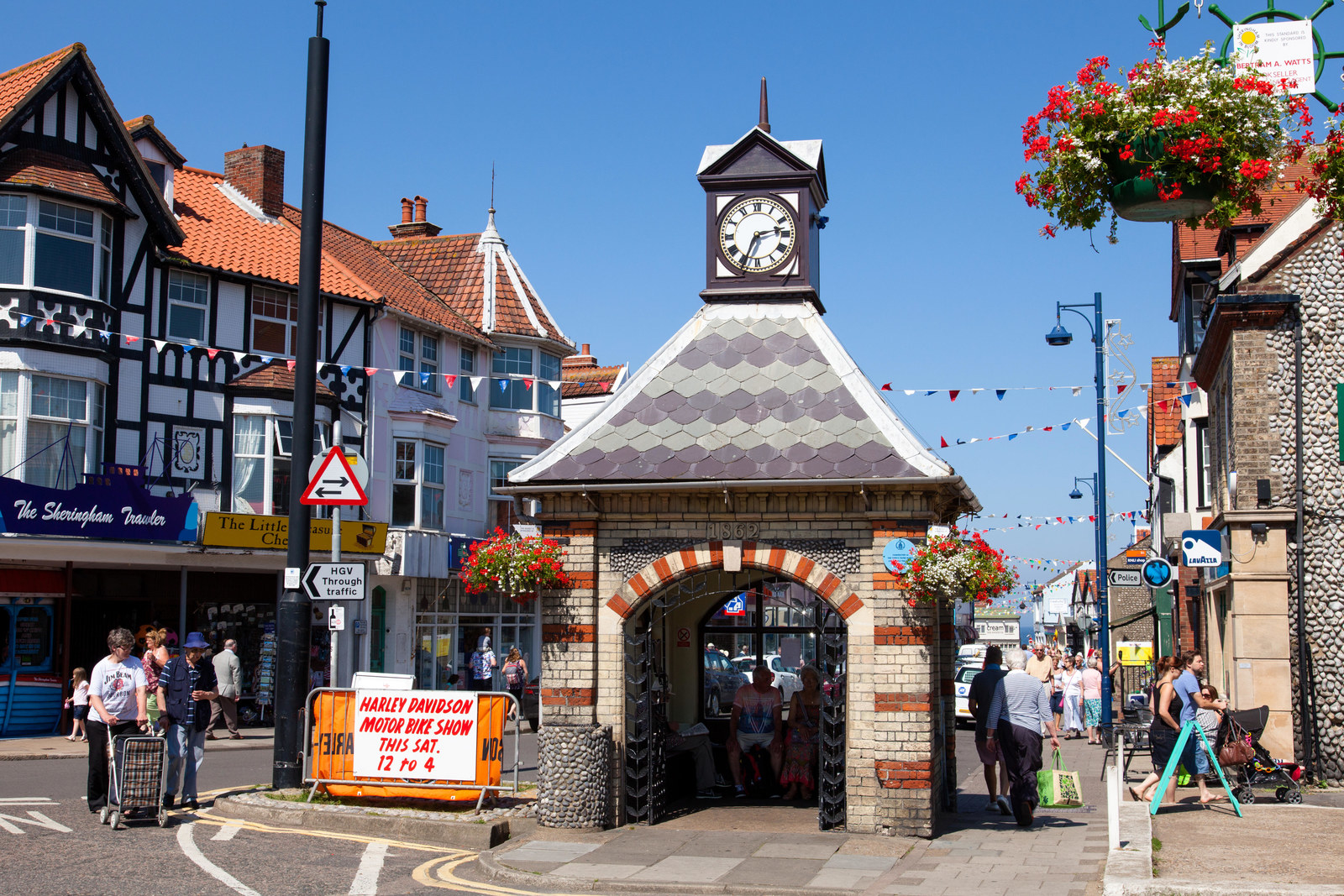
Burke, who also voted Remain in the referendum, was sceptical of how much support Lamb still had in Sheringham. “Norman Lamb has been on the fence and I think he’s paying the price for that,” Burke said.
In contrast to his Lib Dem rival, Burke, who is less well known in the area, was keen to nail his flag to his party’s wider national campaign. He agreed that the ageing population in North Norfolk would be hard hit by May’s social care plans, but thought that Labour offered the clearest alternative to that. “I think what Corbyn has done very well is articulate core Labour values, one of which is about people getting their fair share of taxes,” he said.
He dismissed the idea of a second referendum, saying: “Corbyn has said you have to respect what people voted for, and I think a year along even those who voted Remain are saying let’s just get on with it.”
In Burnley, a Lancashire market town more than 200 miles away from Sheringham, the battle the Liberal Democrats are facing is not all that different. Here too, the party’s strong pro-Remain stance is alienating many of its former voters.
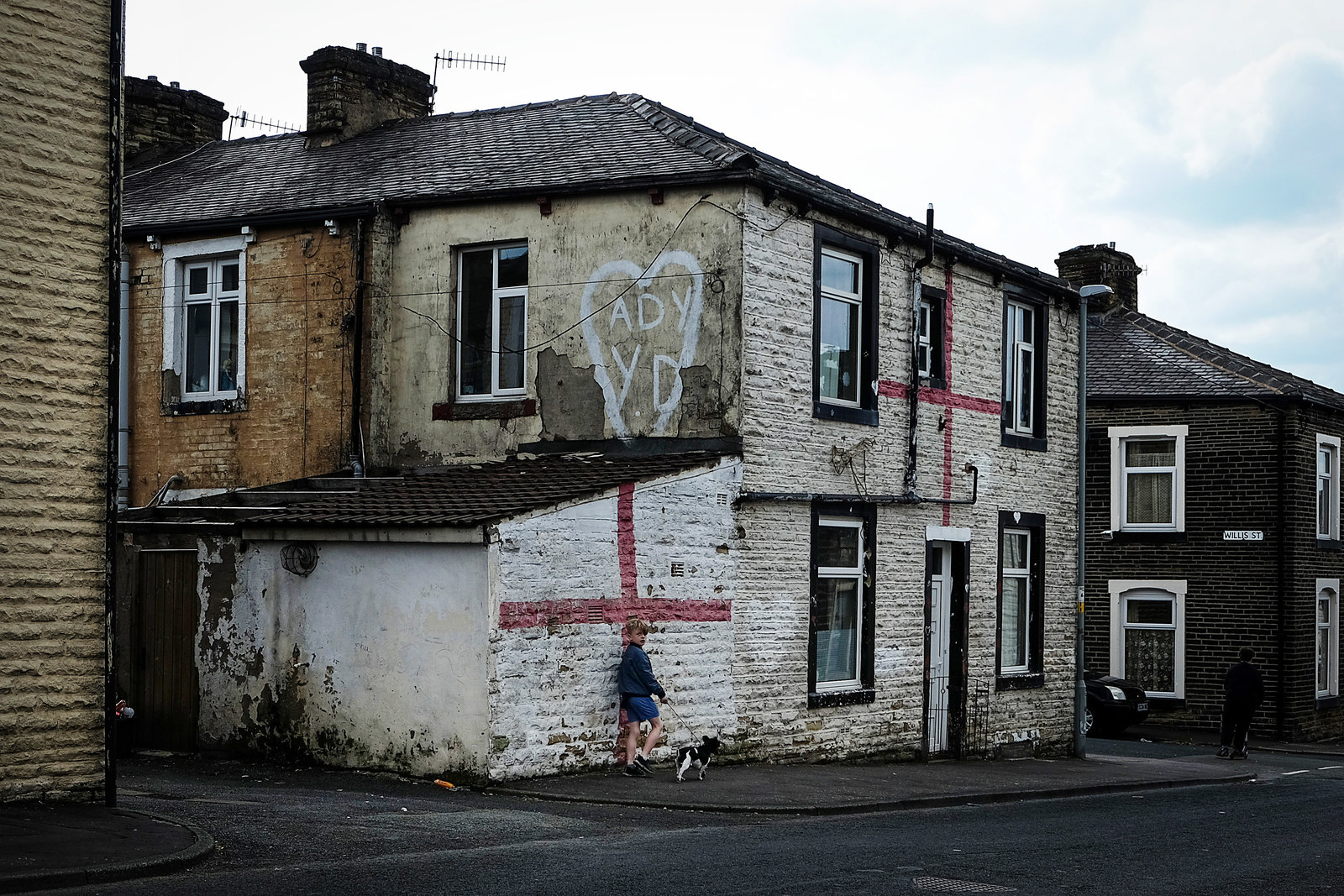
For more than a decade there has been a tug-of-war between Labour and the Lib Dems in Burnley. Labour lost the parliamentary seat it had held for almost 80 years in 2010, only to win it back five years later, while the control of the council has also switched between the two parties over the past 10 years.
In this former mill town, where people are often reluctant to vote for the Tories, the Liberal Democrats have offered an alternative to Labour. But in a post-Brexit world, many of Burnley’s voters are finding themselves at odds with Lib Dem policies. Here, 70% of people voted to leave the European Union, and most Burnley folk – as they refer to themselves – would not entertain Tim Farron’s idea of a second referendum. The party’s plans to legalise cannabis are also not looked upon favourably in this town, with its high levels of substance abuse.
Gordon Birtwistle – who was the Lib Dem MP for Burnley until 2015 and is standing again this time – admitted that he is “definitely” trying to distance himself from the national campaign.
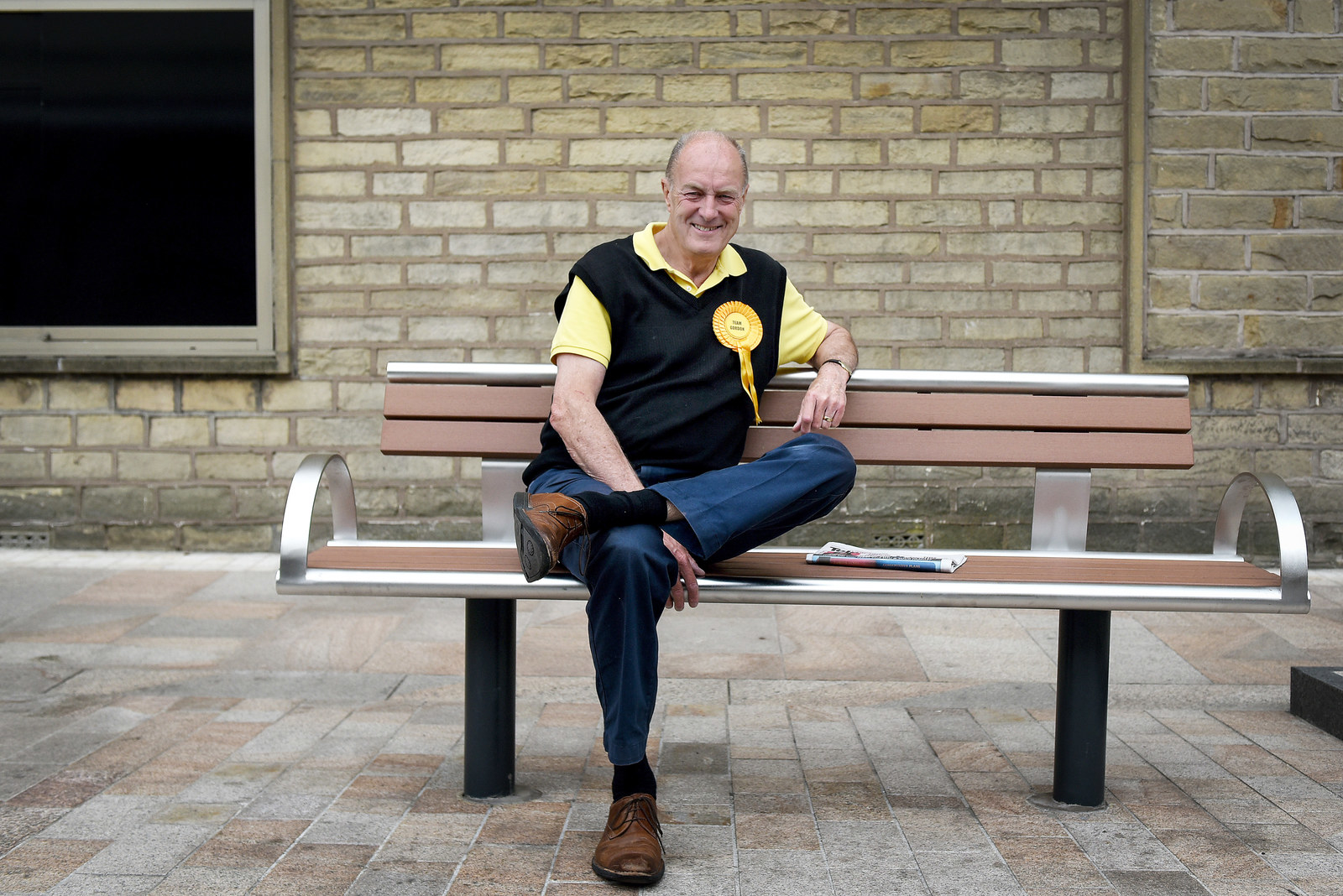
“Look at my badge,” he said proudly, holding up his yellow rosette with the words “Vote Gordon” in the centre, and explained that his campaign slogan is “a person’s politician, not a party politician”. “All my leaflets say ‘Vote Gordon,’” he added. “None of them say ‘Vote Lib Dem.’ That’s how I won it last time.”
“Everybody knows me in Burnley,” he continued. “They either like or or hate me, nothing in between. I’ve been on the council 35 years.” (Unusually, Birtwistle remained a member of the borough council during his five years as Burnley’s MP.)
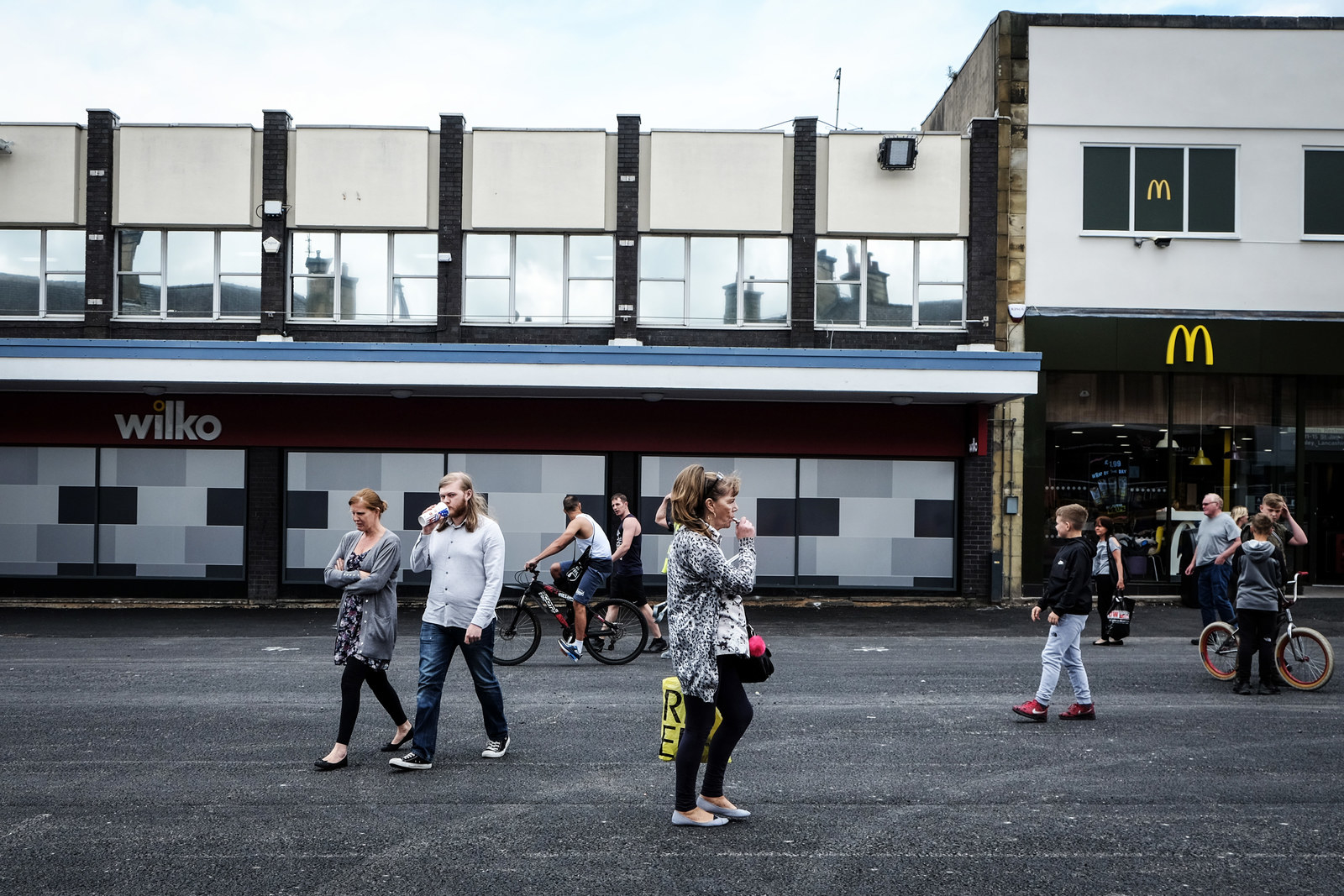
Birtwistle knows that many Liberal Democrat policies do not sit well with the majority of his electorate. Like Lamb, he is hoping that voters will look beyond Brexit to local issues he can champion. “Everybody accepts now that we voted to leave,” he said, “but it’s not the only thing in this election. There are a lot of very important things in this election.” He thinks that the Liberal Democrats’ support for pensioners and the NHS will go down well but feels that their leader, Farron, is problematic.
“I think it’s a combination of everything,” Birtwistle said. “The rigid sticking to the second referendum, which people don’t seem to want at all. Most people recognise that we’re leaving and have to get the best deal that we can.
”And there are very few charismatic, dynamic leaders around at the moment – Corbyn is probably the best.”
Birtwistle said that the response to Farron on the doorstep has been “not particularly good”. “I like Tim,” he added. “He’s a nice lad. But that’s what he is – a nice lad.”
As he stood in the town centre in his yellow polo shirt and rosette, several people came up to shake Birtwistle’s hand and tell him that he has their vote. Just as his slogan suggests, their reasons for supporting him appeared to be largely personal rather than political.
“I’m voting for Gordon,” said 67-year-old Peter Thompson, a retired security officer who greeted Birtwistle with a smile. “He’s got more going for him than a lot of the others.
“Legalising drugs, I’m against that idea. I don’t agree with any of that, but he’s got good vibes going for him. He’s always been respectable and speaks his mind.”
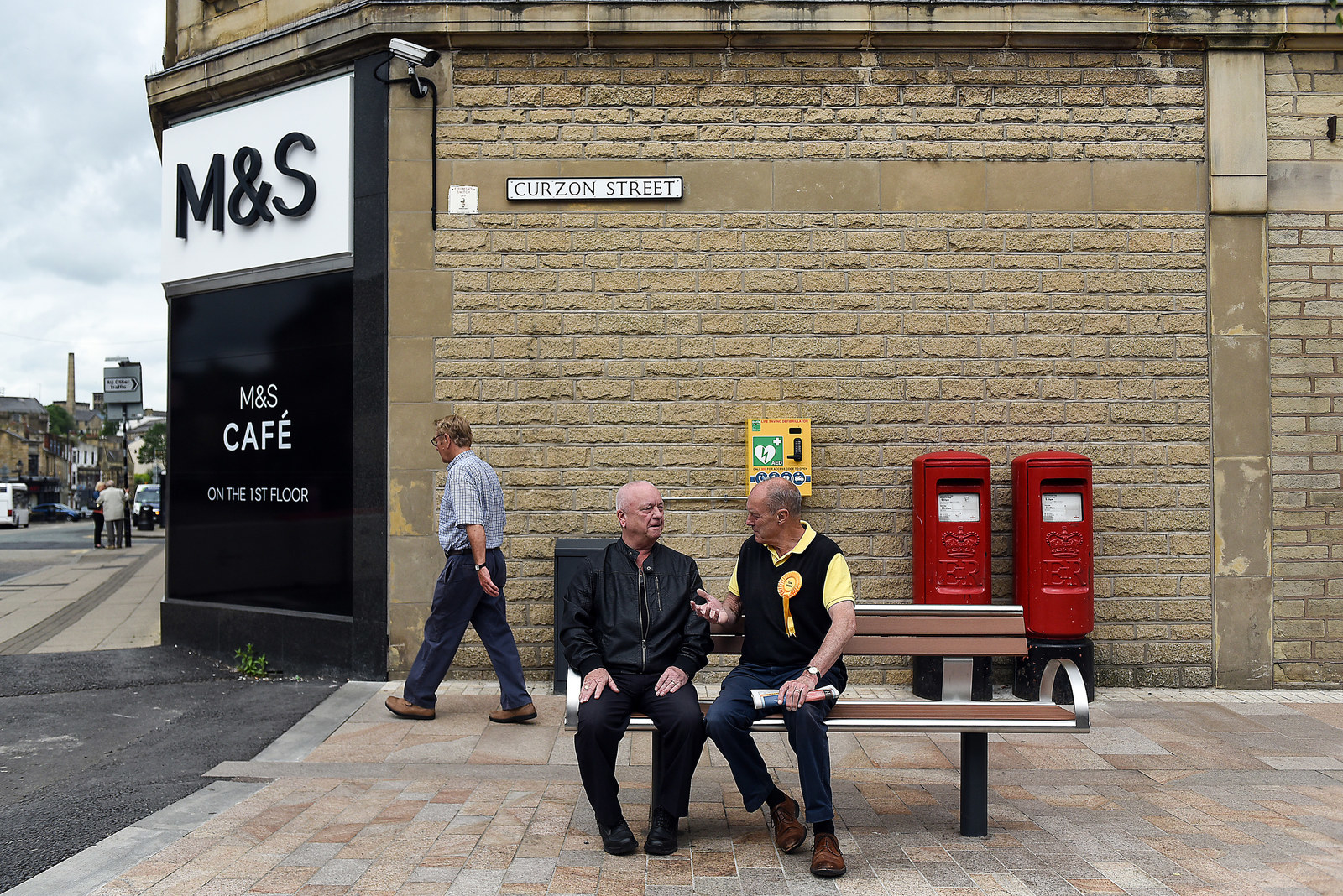
Birtwhistle helped him with his property when he was the area’s MP, “when we thought our house was going to be compulsory-purchased,” Thompson said. “He’s alright, he’s a good lad. He’d be a good prime minister, would Gordon. He really would.”
Crucially, Thompson is voting for Birtwistle despite their differing views on Brexit. Birtwistle voted to remain and is calling for a “soft” Brexit, though he opposes his party’s call for a second referendum. Thompson voted to leave, and his only concern around the process is how much it will cost Britain to sever ties.
“Brexit, I think, is a good thing,” he told BuzzFeed News. “I think we’ve enough working people in our country. The only thing that bothers me is having this bloody bill.”
Across town, Julie Cooper, the Labour candidate and Burnley’s most recent MP, was knocking on doors as she has done every day since the election was called. With a majority of just over 3,000, she is taking no votes for granted – but she isn’t worried about the Liberal Democrats.
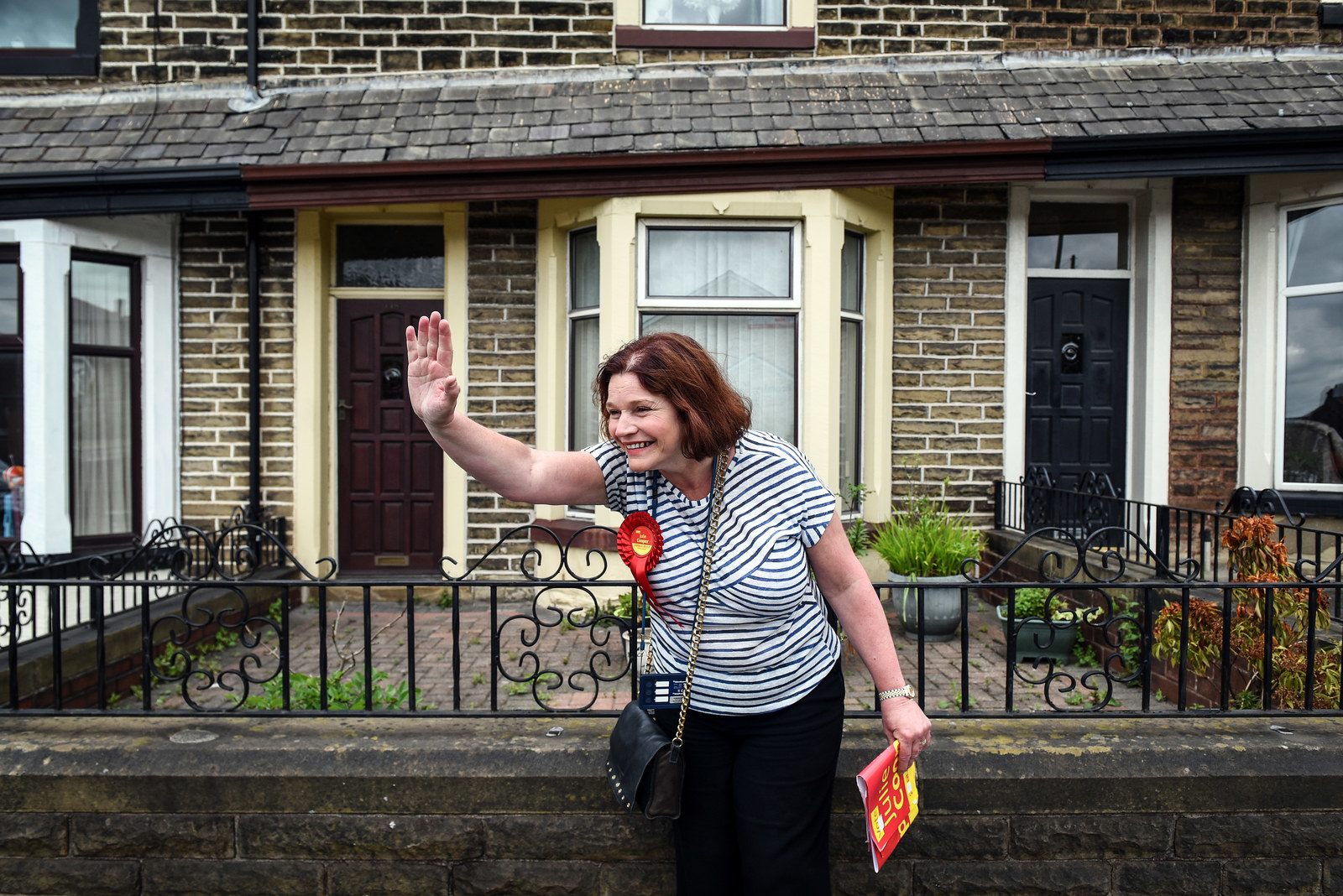
“The Conservatives are the opposition, definitely. The writing was on the wall three weeks ago at the county council elections,” she said, referring to the fact that the Tories took control of the council and polled above the Lib Dems in two of the Labour-held divisions. Burnley isn’t a seat that has been in play for the Conservatives for a very long time – there was last a Conservative MP there in 1910 – but things could be changing.
“In every corner of Burnley there were Tory votes in a way that I haven’t seen since I’ve been involved in politics,” Cooper said. “In the 1980s the Tories were the main opposition and it feels like we’re having a return to those days.
“We’re finding a lot of Conservative support on the doorstep, a lot of people saying they can’t decide who to vote for between the Conservatives and Labour. In the past it’s always been between us and the Lib Dems, but that isn’t the case any more.”
“There’s no nastiness towards them [the Liberal Democrats],” she added. “I think people see them as irrelevant – they don’t count any more, they don’t have a voice. If anyone is to counter the Tories, Labour is the only chance to do that.”
In Lanehead, just outside the town centre, where Cooper was canvassing support, the steep streets are made up of rows of terraced houses. A traditional fish and chip shop that stands at the corner of one was busy with the lunchtime crowd. In the distance, the Pennines stretch out across the horizon, a dozen shades of green.
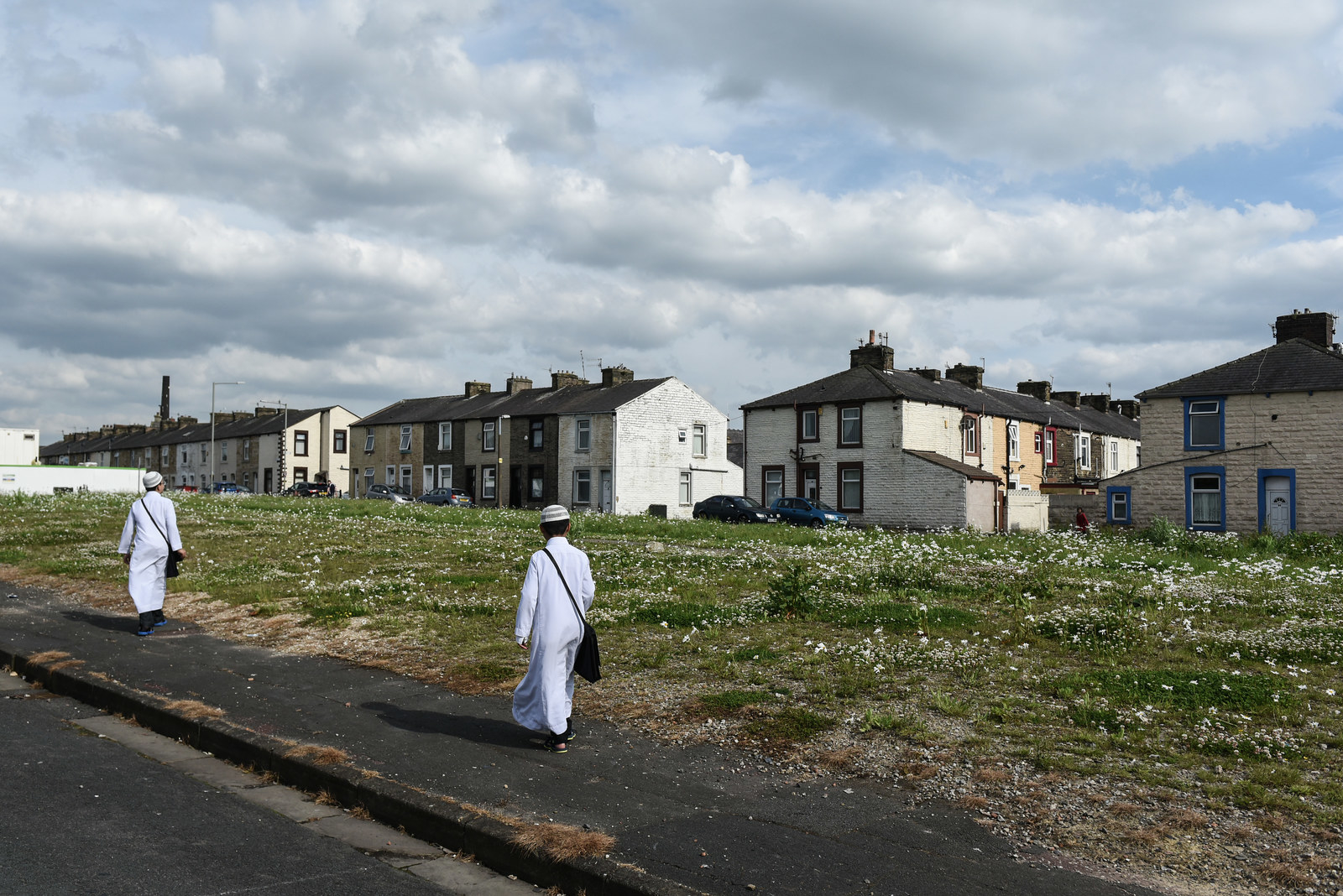
In 2010 both Lanehead and the neighbouring ward each had three Liberal Democrat councillors. Between then and now, Cooper said, Labour has gradually won the seats back.
And, Cooper believes, the Liberal Democrats have now lost out on the anti-establishment votes they once attracted, after going into coalition with the Tories back in 2010. “At every stage [Birtwistle] voted with the Conservatives on things that hurt Burnley,” she said. “He voted for the bedroom tax, he voted to triple tuition fees. There’s a lack of trust.”
Michelle Pickering, 68, was delighted when Cooper knocked on the door of her bungalow, greeting the Labour candidate with a big grin and gladly taking a poster for her window.
“I’d never vote for anyone else,” Pickering said of Labour. “The Tories have always said ‘them and us, keep them poor and keep them frightened’, and the Liberals, I don’t know what they’re for really. They make mistakes but I remember what Labour did for us, and we absolutely need Labour in towns like Burnley.”
Back in the town centre, it was relatively quiet for a sunny half-term afternoon. On the once-thriving high street, several of the shops stood empty. But the shopping centre still managed to draw a crowd.
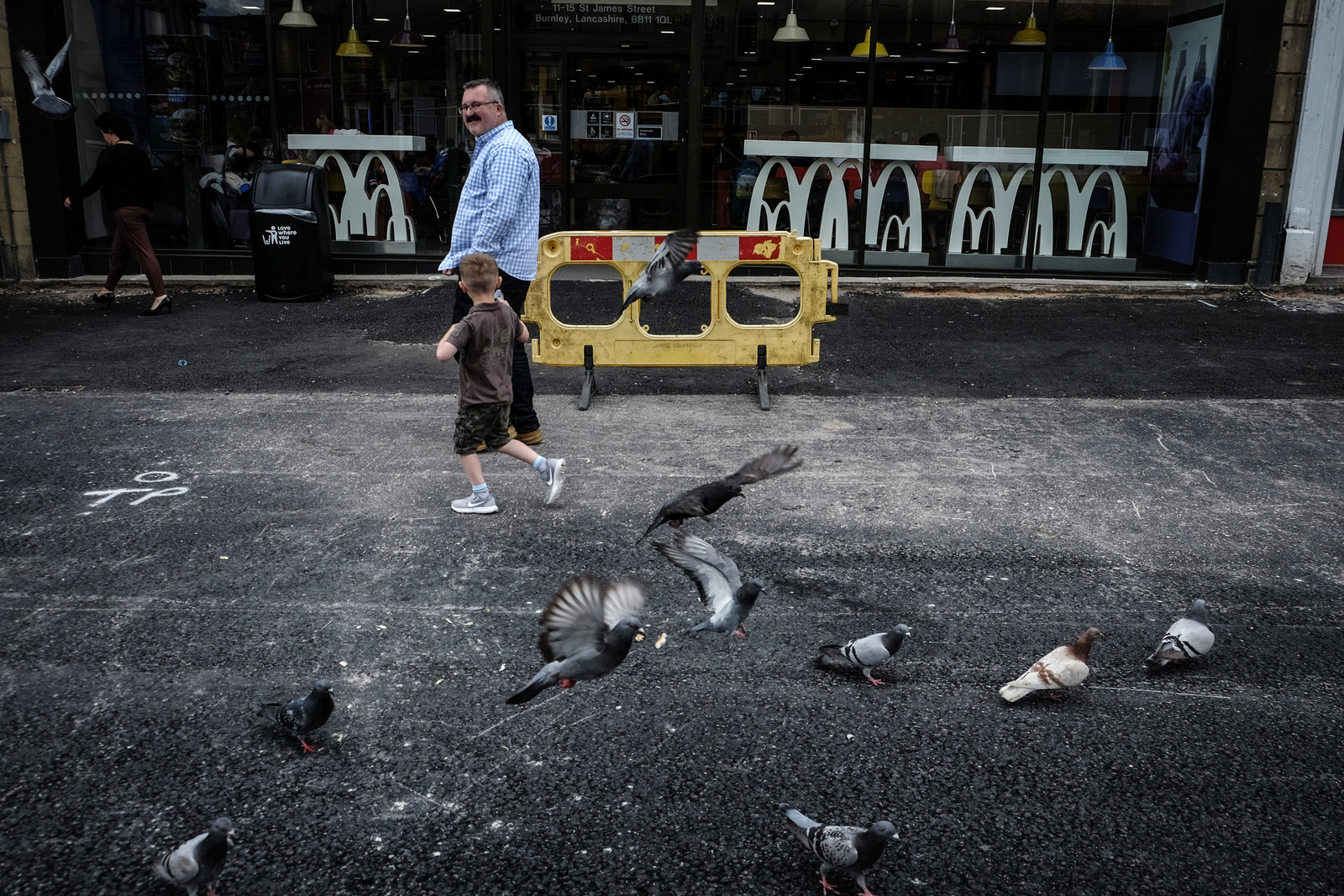
Shoppers here all seemed to be voting either Labour or Conservative – or still choosing between the two.
“I’m voting Conservative,” said Kevin Howarth, 71, a pensioner who lives locally. “I’d never vote Labour. I have in the past, but not with Corbyn as leader – he’s just a plonker. I’ve voted Lib Dem in the locals before, but they’re a non-contender now. I’m voting Conservative.”
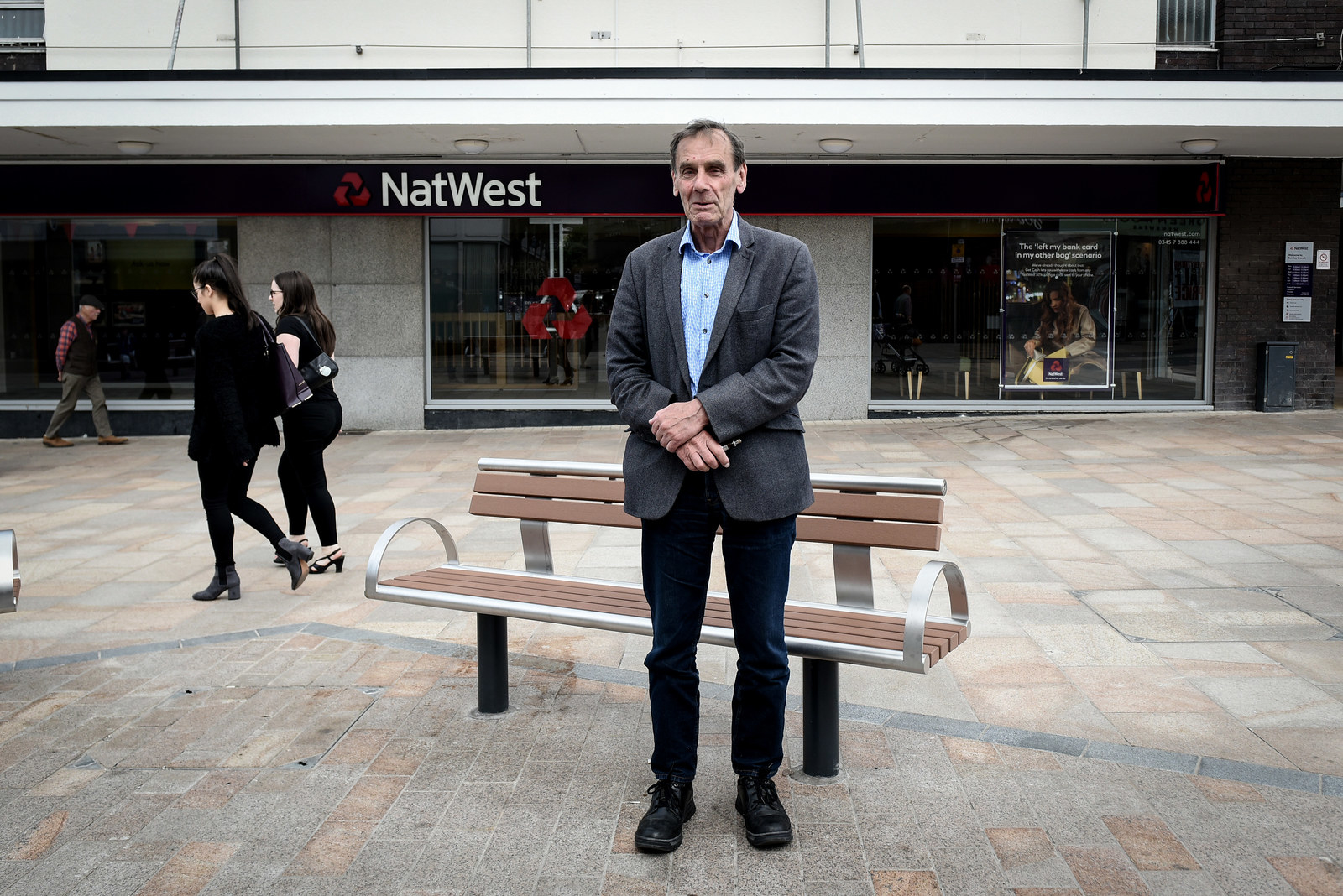
One woman who was shopping in the town centre with her child and did not want to give her name said she was struggling to make her mind up.
“I’m not sure yet,” she said. “As a nurse I’m being told to vote for the NHS, but I can’t help but like Theresa May, so I’m stuck. I’ll have to think very carefully about it. I don’t like any of her NHS strategies at all, but at the same time I quite like her.”
It is people like this young nurse who Paul White, the Tory candidate for Burnley, is desperately hoping to convince.
“It’s traditionally been a Labour/Lib Dem marginal, but what we have seen is that the Lib Dem vote has completely collapsed in Burnley,” he told BuzzFeed News. “Gordon Birtwistle was a popular MP, a pretty active MP. I’ve been surprised at the depth of the drop in the Liberal Democrat vote. When you go to things like postal vote openings you get a good gauge for things.
“When we started the campaign we weren’t really sure how the feeling on the ground would be – we’ve been surprised by the level of support for the Conservatives in Burnley. The feeling on the ground is great; we’re now running a full campaign with a full budget.”
White, a proud Brexiteer who worked on the Vote Leave campaign, believes Brexit has everything to do with it. “This is a seat that voted nearly 70% to leave,” he said. “We’re offering something to people who want to see that followed through. We’re seeing support in the strongest Labour areas.
“Labour are our only opposition. We don’t class the Liberal Democrats or UKIP as opposition at all in Burnley,” said White, who expects that some of his vote will come from former Lib Dem supporters switching to the Conservatives.
“I’ve had Lib Dem members saying to me on the doorstep that they’re voting Tory this time,” he said. “I’ve had about four of them. My support is coming from several different areas. There’s going to be a thousand votes in this. It’s all to play for.”
But when pressed, Birtwistle seemed to think Labour, not the Tories, will beat him and retain the seat. “It’s difficult,” he said. “It’s going to be tight, but this is a strong Labour town.”
But Cooper, his Labour opponent, highlighted the uncertainty of an election at a time of seismic political change: “There’s no such thing as a Labour town any more,” she said. “I think those days are long gone. Every vote has to be earned and won.”
Lamb and Birtwistle's hopes of earning and winning votes in their respective constituencies next week will depend on whether Brexit proves to be an insurmountable stumbling block for them.
Both will be hoping it fades from memory, and that, like in Birtwistle’s mantra, voters come to the ballot box choosing to put the personal above the political.


